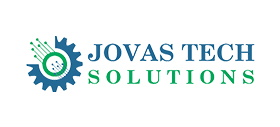Warning: Trying to access array offset on value of type null in /var/www/vhosts/woodnews.in/httpdocs/wiphp/wi_articledetail.php on line 33
Warning: Trying to access array offset on value of type null in /var/www/vhosts/woodnews.in/httpdocs/wiphp/wi_articledetail.php on line 34
Warning: Trying to access array offset on value of type null in /var/www/vhosts/woodnews.in/httpdocs/wiphp/wi_articledetail.php on line 35
Warning: Trying to access array offset on value of type null in /var/www/vhosts/woodnews.in/httpdocs/wiphp/wi_articledetail.php on line 36
Warning: Trying to access array offset on value of type null in /var/www/vhosts/woodnews.in/httpdocs/wiphp/wi_articledetail.php on line 37
Warning: Trying to access array offset on value of type null in /var/www/vhosts/woodnews.in/httpdocs/wiphp/wi_articledetail.php on line 38
Warning: Trying to access array offset on value of type null in /var/www/vhosts/woodnews.in/httpdocs/wiphp/wi_articledetail.php on line 39
Warning: Trying to access array offset on value of type null in /var/www/vhosts/woodnews.in/httpdocs/wiphp/wi_articledetail.php on line 40
Warning: Trying to access array offset on value of type null in /var/www/vhosts/woodnews.in/httpdocs/wiphp/wi_articledetail.php on line 43
Warning: Trying to access array offset on value of type null in /var/www/vhosts/woodnews.in/httpdocs/wiphp/wi_articledetail.php on line 44
No Article Added
Comments

- Piergiorgio Pozzo on ‘dynamic’ saw blade balance
- Naadi boost digital transformation, innovation, growth
- IMALPAL’s solutions for perfect MDF lines
- Dieffenbacher develops fiberboard recycling technology
- Interzum Forum Italy makes its debut
- Craftsmanship in panel board production
- Unlocking versatility of Canadian wood species
- Rising relevance of biophilic workplaces in India
- China is at Europe’s doorstep, not India’s
- A good balance of quality and price
- 3D printer breaks Guinness World Record
- What is calibrated plywood?
- Viefe: where urban elegance meets craftsmanship
- Space-saving extensions from Häfele
- New sliding door system, hinge from Hettich
- Hymmen’s smart2i more than MES
- Veined marble coatings from ICA
- Feature-packed Optimus machines give you the edge
- Jowat sets new benchmark in flat lamination
- 5 applications of Luvih in home décor
- Another successful edition of Xylexpo concludes
- SCM goes beyond the machine at Xylexpo
- Giardina unveils new coating solutions
- Rehau celebrates Design Day with student architects
- Why you should head to Furtech (Dubai)
- Index Plus 2024: innovation in interiors, design
- Canadian Wood impresses budding architects
- Fimma + Maderalia 40th edition a runaway success
- Ligna 2025 will look beyond digitalisation, new products
- CIFF Guangzhou breaks records
- Thailand to host international furniture show in September
- HIFF prepared for September edition
- Event Calendar 2024
- Felder India organises Technology Days
- American species capture Aussie spirit
- ICA puts Bio panels through extremes
- Sculpted illusions brought to reality
- Making furniture with paper machines
- Natural sun protection for parquet, furniture
- Take some, give back more!
- AHEC initiates EUDR response mechanism
- Cefla powers Global Design to the big league
- If you have a problem, go to the Eibl joinery
- Egger counts on Hymmen tech for worktops
- Adaptable, practical hardware from Ozone
- Tendulkar is Hafele’s brand ambassador
- Dieffenbacher supports wood fibre research
- Spacewood takes off with shutters, carcasses, components
- Hyper: smart side pullout storage
- Brazed pre-milling cutters from Leitz
- Ornare panels in 12 new trending colours
- Mitol launches Vision Line adhesives
- Greenply honours craftsmanship
- Blum launches centre in Hyderabad
- Egger commissions recycling site in Italy
- Wooden Street opens plant in Jodhpur
- Century Plyboards starts new MDF factory
- Homag bags €90-m Chinese order
- Unicol celebrates factory expansion
- Hindware introduces Italian collection quartz
- Pietro Gheller heads SCM wood division
- New book on secrets of bonding











































